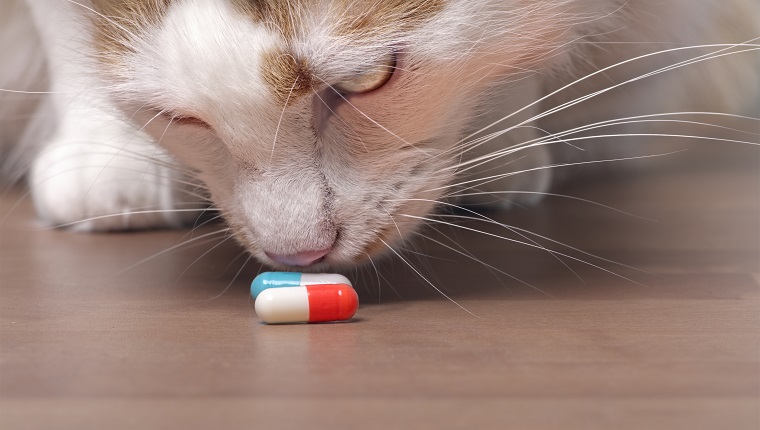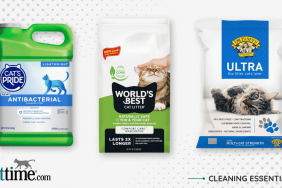Poisoning in cats is a situation that happens when a cat manages to ingest some form of poisonous or toxic substance. It requires immediate medical intervention, and in most cases, it’s helpful to bring the poisonous substance along to your vet too.
Symptoms can come about after a cat ingests or comes into contact with a wide range of substances, including commercial cleaners, vermin poisons, and houseplants.
If you see the signs that your cat may have consumed a poison substance, then you must get to a veterinarian right away for a proper diagnosis and advice. Here’s what you should know about the symptoms, causes, and treatments for poisoning in cats.
Symptoms Of Poisoning In Cats
Symptoms of poisoning in cats can be very wide ranging depending on the precise type of poison that a cat has ingested. In general, some of the most common symptoms include:
- Vomiting
- Diarrhea
- Twitching
- Acting very lethargic
- Salivating
- Having breathing difficulties
- Drinking much more water than usual
- Fever
Causes Of Poisoning In Cats

The cause of poisoning in cats is coming into contact with a toxic substance, of which there are many. Some of the most frequent causes include:
- Detergents
- Toxic plants
- Antifreeze
- Weed killers
- Bleach
- Medications
- Garlic
- Onions
- Chocolate
- Alcohol
- Xylitol
- Pest and vermin poisons
Treatments For Poisoning In Cats
If you notice that your cat has ingested some sort of poisonous substance, contact your veterinarian straight away. Make a note of any immediate symptoms that your cat is displaying, and also take down information about precisely what substance might be upsetting your cat.
Your vet will want to do a full physical examination of your cat and also pay close attention to any specific symptoms they are displaying. They’ll usually order blood work to help identify the precise source of the poison.
When it comes to treatment, the course will depend on the type of poison that the cat has ingested. In some cases, an antidote may be available. Activated charcoal and enemas might also be used to help remove the poison from your cat’s body.
In more extreme cases, vets may use kidney dialysis to help get rid of the poisonous substance.
Has your cat ever suffered from accidental poisoning? What did your vet recommend for treatment? Let us know in the comments section below.









